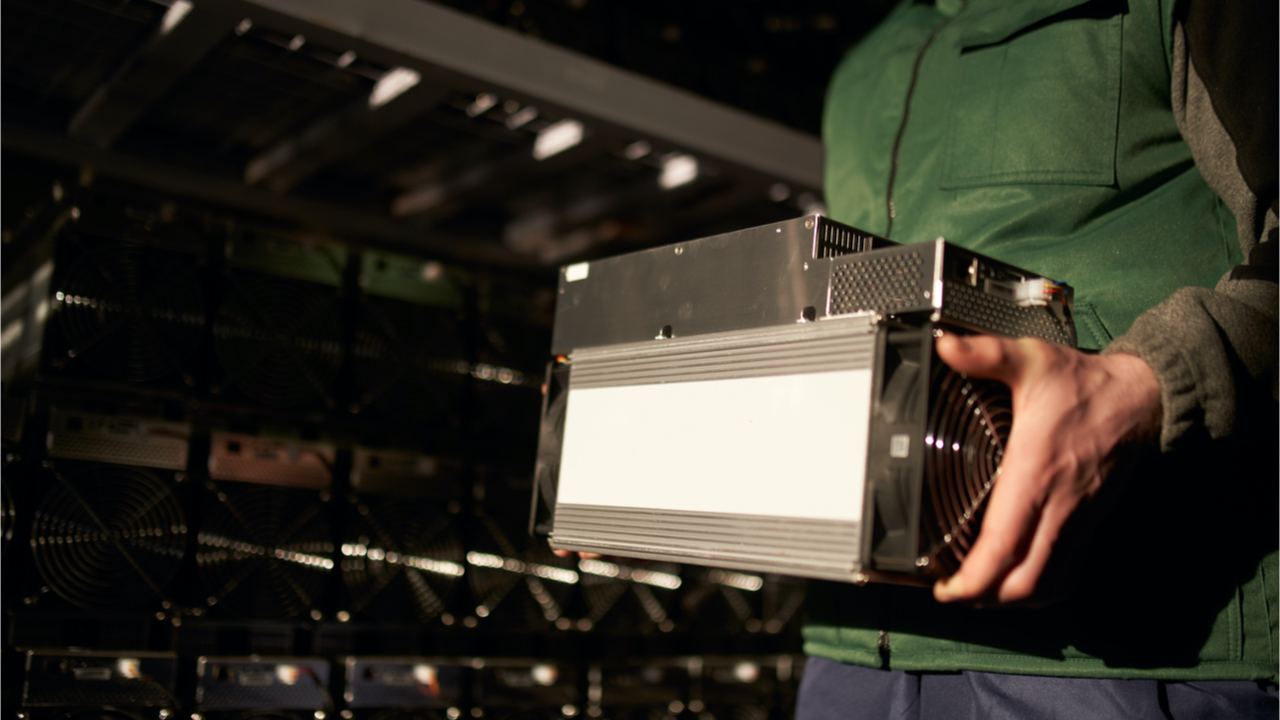On Thursday, the publicly-listed bitcoin mining firm Cleanspark announced that it added 93 petahash per second (PH/s) of hashpower to the company’s existing operations by acquiring 1,061 Whatsminer M30S bitcoin mining rigs. The latest ASIC acquisition follows Cleanspark’s recent purchase contract to buy 1,800 Antminer S19 XP units for “an exceptionally discounted price.”
Cleanspark Purchases 2 Bulk Orders of ASIC Miners in 30 Days at a Discount
Amid the crypto market downturn, the bitcoin mining company Cleanspark purchased two bulk orders of bitcoin mining machines during the last 30 days. Cleanspark, Inc. (Nasdaq: CLSK) announced on Thursday that the company purchased 1,061 Whatsminer M30S bitcoin mining devices. The Whatsminer M30S series are manufactured by the company Microbt and the 1,061 machines equate to 93 petahash per second (PH/s) of hashpower.
Cleanspark detailed that the 93 PH/s have already been added to existing operations and the machines are currently mining bitcoin (BTC) at the firm’s renewable-powered co-location facility. The bitcoin mining company’s CEO, Zach Bradford, explained that the firm is seeing “unprecedented opportunities in this market.” According to Cleanspark, the company managed to purchase the Whatsminer machines at a much lower price than what the devices were selling for a few months ago.
 On Thursday, July 14, 2022, Cleanspark announced that it purchased 1,061 Whatsminer mining rigs (pictured left) at a discount. In mid-June, Cleanspark acquired 1,800 Antminer S19 XP bitcoin mining machines (pictured right) at “an exceptionally discounted price.”
On Thursday, July 14, 2022, Cleanspark announced that it purchased 1,061 Whatsminer mining rigs (pictured left) at a discount. In mid-June, Cleanspark acquired 1,800 Antminer S19 XP bitcoin mining machines (pictured right) at “an exceptionally discounted price.”
The bitcoin mining company further noted that the 1,800 Antminer S19 XP bitcoin mining machines acquired in mid-June were also purchased at a discounted rate. “Our tried-and-true hybrid approach of co-locating our machines while expanding our own mining facilities puts us in an excellent position to sustainably grow our bitcoin mining capacity in what is shaping up to be an incredible market for builders,” Bradford remarked after the ASIC device acquisition.
Cleanspark Says Company’s Bitcoin Production Grew by 50% in 6 Months
With the crypto winter and the macroeconomic climate cutting bitcoin’s value down, it’s quite possible that distressed bitcoin miners are selling large quantities of mining devices for discounts. At the end of June, the co-founder of Luxor Technologies estimated that $4 billion in loans backed by crypto mining rigs are extremely close to running a risk of default. Furthermore, JPMorgan’s strategists, led by Nikolaos Panigirtzoglou, published a note on Wednesday that claims bitcoin production cost was slashed from $24K at the start of June 2022, to today’s estimate of around $13K.
Cleanspark disclosed that the firm’s computational power has risen 47% during the past six months and the company’s bitcoin production grew by 50%. “These important KPIs underscore the fact that our growth is outpacing global hashrate, particularly our ability to stay ahead of network difficulty adjustments. We believe that our operational strategy focused on efficiency, up-time and execution will allow these metrics to continually improve,” Bradford added.
Tags in this story
1061 ASICs, 1061 Whatsminers, antminers, Bitcoin (BTC), Bitcoin Miners, BTC, BTC Mining, Cleanspark, Cleanspark CEO, crypto mining, Crypto Winter, crypto winter opportunities, JPMorgan strategists, mining, Nikolaos Panigirtzoglou, Whatsminers, Zach Bradford
What do you think about Cleanspark purchasing 1,061 ASIC miners and explaining that there are “unprecedented opportunities” in this bear market? Let us know your thoughts about this subject in the comments section below.
![]()
Jamie Redman
Image Credits: Shutterstock, Pixabay, Wiki Commons
Disclaimer: This article is for informational purposes only. It is not a direct offer or solicitation of an offer to buy or sell, or a recommendation or endorsement of any products, services, or companies. Bitcoin.com does not provide investment, tax, legal, or accounting advice. Neither the company nor the author is responsible, directly or indirectly, for any damage or loss caused or alleged to be caused by or in connection with the use of or reliance on any content, goods or services mentioned in this article.


